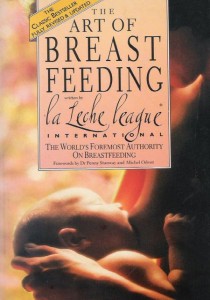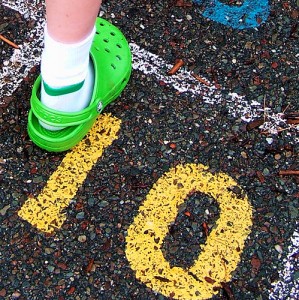As homeschoolers, we find that we are often asked to justify our decision to raise our children outside the school system.
We are constantly bombarded with queries about our homeschooling from all quarters: the sincerely concerned, the intellectually curious, the secretly disapproving, the intensely doubtful and the hopeful wannabes.
Homeschooling is quickly moving into the mainstream from the periphery and becoming a serious and totally viable educational option for many.
In the US alone, the number of homeschoolers have been estimated at 1.9 to 2.4 million students in the 2005-06 period by the National Home Education Research Institute. It believes that this number is increasing at 7 to 12 per cent per year, making it the fastest growing form of education there.
The story is similar in many other countries. In the UK, a homeschool advocate estimated that 50,000 children were being homeschooled in 2005, while in 1996 the London Evening Standard reported that 15,000 families were home-educating.
Canada had around 80,000 homeschooled children in 2001, up from a meagre 2,000 in 1979. New Zealand had an estimated 6,437 homeschooled students in 2003, or 1 per cent of school enrolment, compared to 3,141 in 1993, an increase of 105 per cent in ten years.
Even in Germany, where homeschooling is not legal, it is believed that there are between 500 and 600 homeschooled students. Homeschooling is also illegal in China but increasing reports of this method of education in the Chinese media suggest that the number of homeschoolers there is growing.
Perhaps the best way to explain why we homeschool and what we do as homeschoolers is to describe a typical day in our lives.
We are that renegade brand of homeschoolers called unschoolers. As unschoolers, we do not follow any fixed curriculum. We try not to bring the classroom into the home.
What we do follow are our children’s hearts and with each new day we know not where that path may lead. We keep our own hearts wide open and trust that our children know what is best for themselves. We have no fixed schedules or things that we must do.
Instead, we allow ourselves to be spoiled for choice. There are many things from which we can select, among them painting, going to the library, singing, dancing, cooking, writing, reading, chatting, playing board games, sports, visiting friends, watching TV, surfing the net, shopping, playing video games, telling jokes, attending outside activities, enjoying downtime and living life.
One of the key motivations for parents to homeschool is their disenchantment with government school systems. Parents are increasingly feeling that they are able to provide a better education for their children in the home.
And the academic results are coming back in their favour. Homeschoolers consistently surpass the national averages on both of the major US college entrance exams, the ACT and the SAT.
Many of the biggest names among US and Canadian tertiary institutions of learning have welcomed homeschoolers into their midst, including Harvard University, Yale, Stanford, MIT, University of Toronto, York, Dalhousie and the University of Saskatchewan.
In fact Jon Reider, Stanford University admissions official, has been quoted as saying that homeschoolers bring certain skills – motivation, curiosity, the capacity to be responsible for their education – that high schools don’t induce very well.
Add to that religious convictions, stronger family bonds, flexibility to tailor the learning to suit the needs of each particular child, freedom from peer group pressure and a physically safer environment in which to learn and you have an almost airtight case for homeschooling.
You might be wondering where are the math and the science, the geography and history and English that children go to school to learn. We often fail to recognise them if they are not presented to us in neat textbooks.
In fact, they are all concealed within the daily activities that we pursue. Figuring out the right amounts and proportions for baking choc chip cookies is math. Watching how a spoonful of salt lowers the boiling point of water is science.
Checking out a dinosaur website is history, geography and science all rolled into one. Reading together lays a strong foundation for independent reading and better comprehension.
Painting, drawing, singing, dancing, talking, telling jokes are all exercises in developing the right brain – the seat of imagination and creativity. The difference in this case is that the children take the lead in what they learn and decide the depth to which they want to take a subject.
But what about socialisation – that big question that is constantly on the minds of homeschool critics. A 1994 study by Dr Brian Ray, president of the US-based National Home Education Research Institute (NHERI), found that the average homeschooler is regularly involved in 5.2 social activities outside the home.
These include group sports, scouts, church groups, dance and music classes, volunteer work, field trips and cooperative programs with other homeschoolers, part-time employment and neighbourhood play.
This freedom to choose from diverse types of activities and the consequent wide exposure to people and situations seem, in fact, to have given homeschoolers the upper hand in social skills.
As unschooled children, the world becomes their classroom; our home their laboratory. Their friends are everyone they meet, from the very old to the very young. And this exposure to the infinite variety that life has to offer is one of the key reasons we unschool.
We have discovered that when children get to choose what, when and how they learn something, they end up really owning that piece of knowledge.
It becomes something that is part of them, something that they never forget, something that they understand so well that they are able to apply it in every aspect of their lives where it is applicable.
In 1992, Prof Larry Shyers of the University of Florida found that it was the public school children that had more problem behaviours than homeschooled children. Thomas Smedley of Radford University concluded in a 1992 research that homeschooled students are more mature and better socialised than their public and private school peers.
In yet another study, Prof John Taylor of University Microfilms International in Ann Arbor, Michigan, found that homeschooled children had significantly higher self-esteem than those in public schools.
But obviously this system of not having a fixed schedule is extremely challenging to us, as the parents. Our own schedules are necessarily turned upside down as we accommodate those of our children.
Homeschooling looks very much like something whose time has come. The homeschool movement, by virtue of its outstanding results both academically and socially, grows stronger worldwide with each passing year.
Governments are being lobbied, and sometimes challenged in court, to release their exclusive hold on education and to legalise homeschool.
The US has shown the way in this respect. In 1980 homeschooling was illegal in 30 US states. By 1993 it had become legal in all 50 states.
Parents deserve the right to choose how their children should be educated – whether in a school or at home. Homeschool parents have consistently delivered the results and it is time the education departments loosen up and let parents decide.
The basic keynote of our unschooling experience is freedom for the children – freedom to take responsibility for their day, freedom to live their dreams, freedom to choose who they will become.
Therefore, their time-table is self-imposed and determined by their need to know rather than by our need for them to know.
But at the end of the day, having been brought up within the school system ourselves; we are constantly having to let go of any, and all, preconceived ideas about how children learn.
The hardest lessons for us, as unschooling parents, have been to relax, to trust our children and ourselves, and to enjoy the journey.











Very well researched, well-written article!! Thanks for sharing it. 🙂
Hi Eileen,
Nice post. I strongly agree with your sentiment that children come first…and that one of hardest aspects of “unschooling” is trust in children and in ourselves. However, I need to point out that it is a myth that homeschooling was illegal in 30 US states in 1980. Even though I’m Canadian, I have followed homeschooling around the world since 1976. You might want to read here: http://gaither.wordpress.com/2009/12/21/west-on-the-harms-of-homeschooling/ for some details about this.
Wendy Priesnitz
Hi Idzie, always good to hear from a unschooled person. Thanks for commenting.
Hi Wendy, appreciate you pointing that out. Thank you.
Social comments and analytics for this post…
This post was mentioned on Twitter by Idzie: Great article on why homeschooling, and specifically unschooling, is great! http://parenting-works.com/?p=497…
What a wonderfully written article! Thank you so much for sharing, I will pass this around too all I know 🙂
Hi Sam, thanks very much for your kind words and for passing the article around. What has your unschooling experience been like so far?
Eileen,
I enjoyed your piece and linked it to my facebook page, “The Case for Homeschooling” at http://www.facebook.com/pages/The-Case-for-Homeschooling/107949119240905
Jeremy
Thanks, Jeremy.